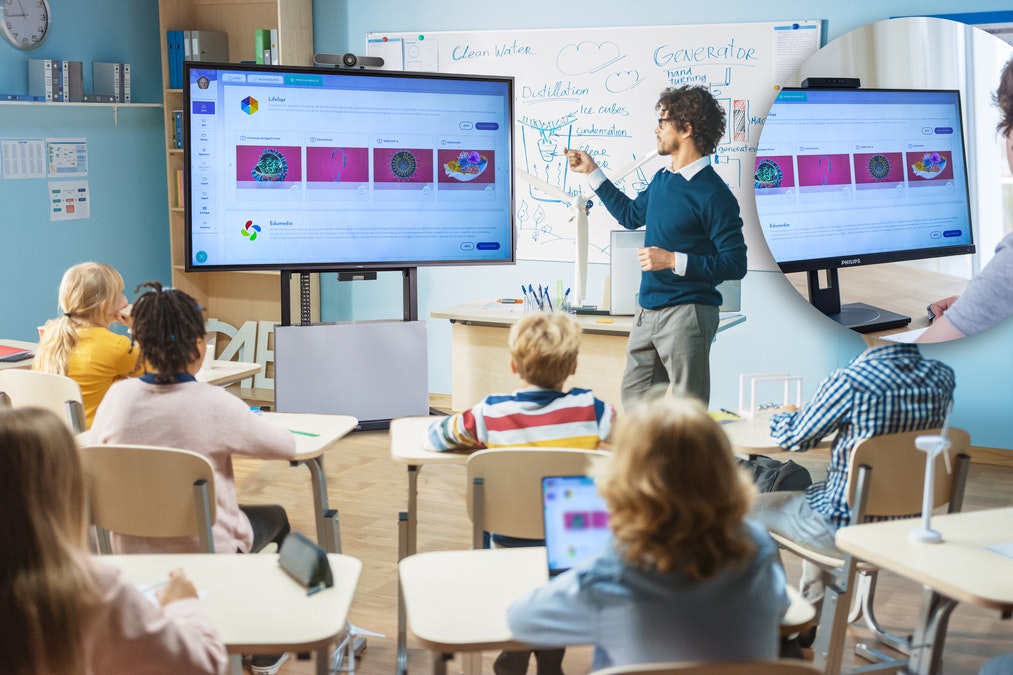Expert Tutors Offering Primary Science Tuition Singapore for All Grades
Expert Tutors Offering Primary Science Tuition Singapore for All Grades
Blog Article
Discover the Necessary Benefits of Comprehending Main Science for Young Students
The relevance of key scientific research education for young learners extends far beyond plain understanding procurement; it offers as a basic pillar in establishing important abilities such as crucial thinking, analytic, and imagination. Engaging with clinical concepts via interactive and inquiry-based activities not only grows curiosity but also lays the foundation for durable, confident learners.
Enhancing Important Assuming Abilities
Promoting crucial thinking abilities in young students is essential for their cognitive advancement and future academic success. Critical thinking makes it possible for youngsters to analyze details, assess evidence, and make educated decisions, which are vital skills in today's information-rich culture. By taking part in clinical query, young learners can improve these skills as they check out ideas through trial and error, thinking, and observation.
In main science education and learning, educators can promote crucial reasoning by motivating pupils to ask questions, create theories, and conduct experiments. This hands-on approach permits children to exercise problem-solving and create rational thinking skills. When students examine the homes of products or the principles of activity, they learn to assess their searchings for critically and attract verdicts based on proof.
In addition, conversations and joint jobs can promote critical thinking by providing chances for learners to express their thoughts, obstacle presumptions, and take into consideration varied viewpoints. By developing an encouraging atmosphere that values inquiry and representation, teachers can support essential assuming skills that equip young learners to end up being lifelong students and independent thinkers. Ultimately, improving these abilities lays a durable foundation for their future scholastic ventures and personal growth.
Cultivating Interest and Expedition

Primary science education supplies a structured atmosphere where young students can check out numerous phenomena via hands-on experiments and observations. By allowing them to communicate with products and participate in inquiry-based discovering, instructors develop opportunities for children to formulate hypotheses, examine their concepts, and reason. Such experiences support a feeling of wonder and enjoyment concerning science.

Building Confidence in Trouble Solving
Structure confidence in analytical is an essential element of primary scientific research education and learning that equips young students to come close to difficulties with strength and creativity - primary science tuition Singapore. When youngsters are encouraged to involve with scientific concepts with hands-on tasks and inquiry-based knowing, they establish necessary abilities in vital thinking and analysis. This process not only boosts their understanding of clinical principles but likewise cultivates a feeling of possession over their learning
To develop confidence, teachers must create an encouraging environment where blunders are deemed possibilities for development as opposed to failures. This urges trainees to take threats and check out various services to troubles. By giving scaffolding and advice, teachers can help pupils navigate complex jobs, progressively boosting their independence in analytical situations.
Moreover, collective learning experiences, such as group projects or experiments, can further improve students' self-confidence as they find out to articulate their thoughts and listen to others' perspectives. These interactions support social skills and enhance the idea that analytical is commonly a cumulative undertaking. Inevitably, cultivating self-confidence in analytical prepares young students for future scholastic obstacles and equips them with the devices required for long-lasting knowing.
Encouraging Creative Thinking and Technology
In the world of primary scientific research education and learning, motivating creativity and advancement is vital for growing a dynamic discovering environment. By promoting a society where young students can explore ideas and experiment openly, educators help trainees create essential thinking skills and an enthusiasm for exploration. Creative thinking in scientific research motivates kids to ask inquiries, design theories, and engage in hands-on activities that boost their creativity.
Incorporating open-ended projects and inquiry-based knowing right into the curriculum allows students to express their unique viewpoints and services. For circumstances, when entrusted with addressing a trouble related resource to their setting, pupils can brainstorm several approaches, resulting in creative end results that display their originality. This not only strengthens their understanding of clinical concepts but likewise instills a feeling of possession over their learning procedure.
Moreover, innovative scientific research education and learning nurtures partnership among peers, as students click to read typically share ideas and build on one another's insights - primary science tuition Singapore. This joint spirit promotes not just advancement but also vital social abilities. Thus, by focusing on creative thinking and innovation in main science education, we equip young learners to believe critically, welcome difficulties, and picture opportunities, laying a solid foundation for lifelong understanding and expedition
Planning For Future Understanding Difficulties
Young students' capacity to navigate future learning difficulties depends upon a strong structure in primary scientific research education and learning. This fundamental understanding outfits trainees with critical believing skills and a methodical method to analytic, crucial for dealing with complex concerns in an ever-evolving globe. Main scientific research promotes inquiry-based discovering, motivating students to ask inquiries, discover theories, and engage in hands-on experiments.
As they establish these abilities, students become skilled at analyzing data, recognizing patterns, and drawing educated verdicts. Such proficiencies are essential not just in clinical areas however likewise in engineering, mathematics, and technology (STEM), where interdisciplinary expertise is increasingly important.
Additionally, key science education cultivates a sense of interest and resilience in young learners, enabling them to see challenges as opportunities for development. As they run into and get over obstacles in their scientific explorations, they construct self-confidence in their capacity to adjust and innovate.
Eventually, a strong structure in primary scientific research not only prepares young learners for academic pursuits but also outfits them with the devices necessary for lifelong understanding and adaptability in a swiftly changing worldwide landscape. By spending in primary scientific research education, we are buying the future capacity of our learners.
Verdict
Recognizing primary scientific research is critical for young learners, as it fosters critical thinking, interest, and creative thinking. Involving with scientific ideas via hands-on experiments constructs and enhances problem-solving abilities durability. This fundamental understanding not only gears up trainees to analyze information and identify patterns but also supports an inquiry-based way of thinking. Ultimately, the advantages of key science education prepare kids for future scholastic pursuits and instill long-lasting knowing behaviors crucial for flourishing in an ever-evolving globe.
The importance of primary scientific research education for young students expands much beyond plain knowledge acquisition; it serves check these guys out as a basic pillar in creating essential abilities such as crucial reasoning, analytical, and imagination. By creating a supportive environment that values query and reflection, instructors can nurture important thinking skills that empower young learners to become long-lasting learners and independent thinkers. Hence, by prioritizing creative thinking and technology in key scientific research education, we equip young students to believe seriously, welcome obstacles, and picture possibilities, laying a solid structure for lifelong learning and expedition.
Young students' capacity to browse future discovering difficulties pivots on a strong foundation in key science education.Comprehending primary science is critical for young students, as it fosters vital thinking, curiosity, and imagination.
Report this page